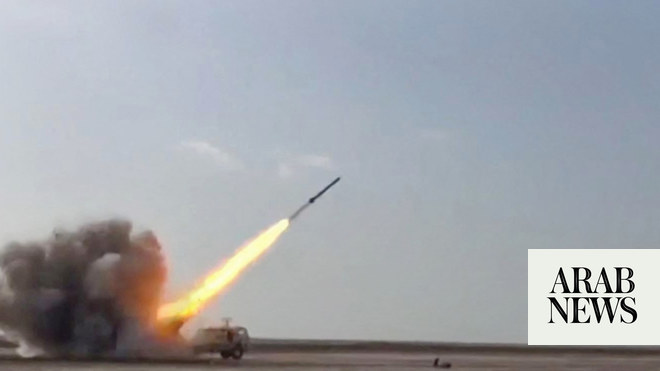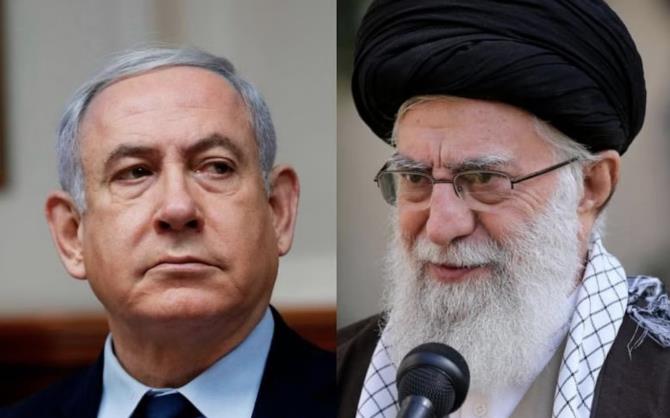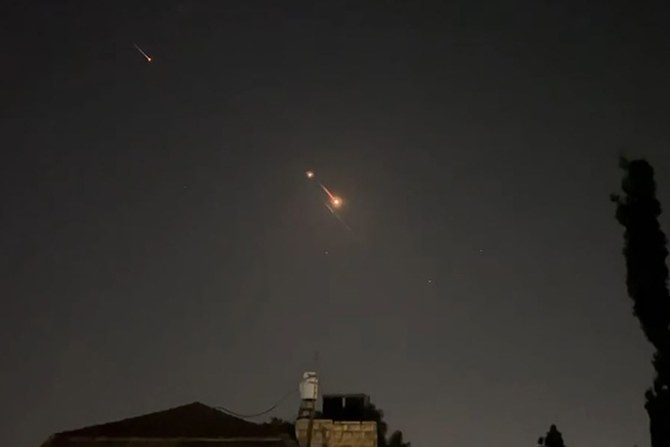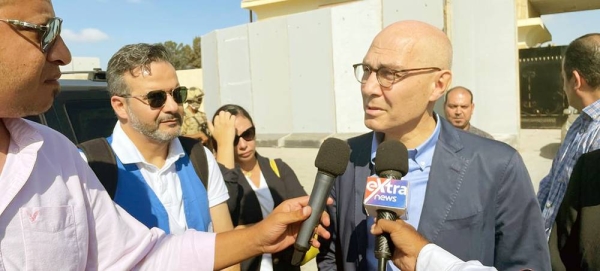
The last few weeks have not been kind to Tehran. First, US President Donald Trump carried out his campaign promise to take his country out of the international agreement to restrain Iran’s nuclear program, demanding that a new deal be negotiated. Then, a few days later, Iran’s political allies in Iraq suffered a major setback when a centrist, anti-sectarian and broad nationalist coalition that is primarily against Tehran’s meddling in Iraqi affairs took the lead in the legislative elections. And — to make things worse — as Iranian officials raced to contain the damage from these two events, Israel hyped up its pounding of Iranian military targets in Syria, with the Russians looking on.
The Russian-Iranian alliance in Syria was always viewed as one of convenience; a transient arrangement that served the short-term interests of both Moscow and Tehran. But now triumphant Russian leader Vladimir Putin is charting an independent course in Syria that leaves the Iranians out in the cold. He is yet to demonstrate where he stands on a possible showdown between Israel and Iran. The former has followed its threats with action, carrying out a series of strikes, on an almost daily basis, against carefully chosen Iranian targets throughout Syria. The most recent attacks were attributed by the Damascus regime to “unknown parties,” but it is almost certain that Israel is the main, if not only, culprit.
Putin is seizing the geopolitical moment. Since Russia intervened militarily in Syria in September 2015, the tide has turned: The regime of President Bashar Assad narrowly escaped collapse, while the rebel groups’ hold over major cities and districts was undone, albeit at a huge humanitarian cost. Pro-Iranian militias played an instrumental role in repulsing Daesh, Al-Nusra and other militant groups in Aleppo, Qalamoun, the Hama countryside and, more recently, in Eastern Ghouta — hence the cooperation between Tehran and Moscow.
For a beleaguered Tehran, Moscow is an important player that can help in two fundamental issues: Salvaging the nuclear deal and avoiding open confrontation with Israel in Syria.
Osama Al Sharif
But new rules are now in play: Putin is playing both Israel and Iran, hoping to use the former to put pressure on the latter. As he told Assad this week in Sochi, he wants to see all foreign armed forces withdrawing from Syria. That includes US, Turkish and Iranian troops, although Putin made no specific reference to any of them. Furthermore, Putin pushed Assad to recommit to the political process. Assad announced that he will be listing delegates for the Constitutional Committee that will work on amending the Syrian constitution.
Russia intensified its political efforts by convening the Astana round-table last week, which renewed its commitment to preserving the de-escalation zones; the most important being the southern one, which is a potential battleground between Israel and Iran. Also last week, a senior Russian official said he expected a new round of the inter-Syrian talks to be held in Geneva in the near future. This is another indication that Moscow, the major stakeholder in Syria, wants to revive the political process in the hope of ending the conflict.
It is not clear if Putin has presented himself as a mediator between Israel and Iran but, for a beleaguered Tehran, Moscow is an important player that can help in two fundamental issues: Salvaging the nuclear deal and avoiding open confrontation with Israel in Syria. The Israeli press has hinted that Prime Minister Benjamin Netanyahu may have received Putin’s approval to take action in Syria against specific Iranian targets when he visited Moscow on May 9. Five days later, Iran’s Foreign Minister Mohammed Javad Zarif was also in Moscow to review the repercussions of the US exit from the nuclear deal — but it is likely that Israel-Iran tensions in Syria were also discussed.
Iran’s lack of response to Israeli strikes is not surprising. The fate of the nuclear deal is of utmost importance, especially to President Hassan Rouhani and the so-called moderate camp. Engaging in a protracted war with Israel in Syria would distract these efforts and strengthen Iran’s hardliners. Rouhani’s window of opportunity to save the nuclear deal will be closing soon. If and when that happens, one can expect major political shifts to take place inside Iran.
Iran will be pressured by the EU, and maybe by Moscow and Beijing, to review the nuclear agreement and expand it to also limit Tehran’s long-range missile program and end its meddling in regional affairs. Salvaging the nuclear deal may require Iran to limit its presence in Syria as well as in Iraq and Yemen. Rouhani is unlikely to yield to such conditions, as hardliners will accuse him of selling out to the West and its Arab allies.
So far, Israel is making the best of Iran’s political debacles. Putin will allow Tel Aviv to constrain Iranian gains in Syria but without indulging in an open war. It’s a risky game for all but it is one that may succeed in weakening Iranian hands in Syria — and that is good news for its neighbors. The bad news is that it may also contribute to Rouhani’s fall, thus handing power to extremists and putting various players on a new regional collision course.
Osama Al Sharif is a journalist and political commentator based in Amman. Twitter: @plato010












